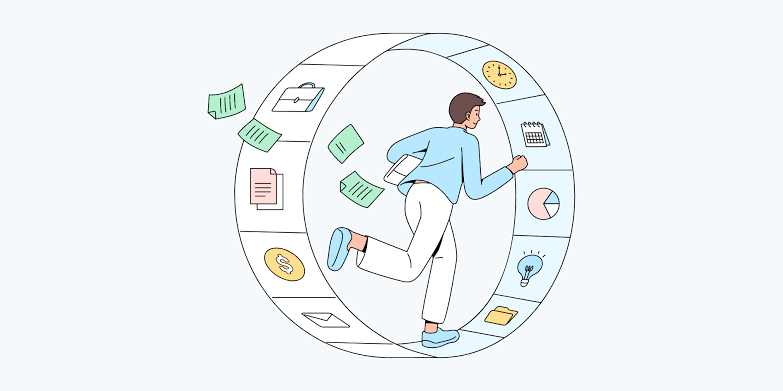In a world filled with distractions and endless tasks, achieving consistent productivity can feel like a challenge. However, productivity is not about working longer hours or pushing yourself to exhaustion. It is about working smarter, using time and energy effectively, and creating habits that support your goals. Small, simple habits practiced daily can have a profound impact on your ability to stay focused, accomplish tasks, and maintain balance.
In 2025, where remote work, digital platforms, and flexible schedules dominate, productivity requires more than traditional time management strategies. Building daily routines that enhance mental clarity, energy, and motivation has become essential. By incorporating simple, intentional habits into your daily life, you can increase your efficiency without sacrificing well-being.
The Power of Morning Routines
A productive day often begins with a structured and intentional morning routine. Waking up early and avoiding the temptation to check social media first thing in the morning can set the tone for the entire day. Starting with activities that boost mental and physical energy, such as light exercise, meditation, or reading, helps create focus and positivity.
Creating a list of priorities before diving into tasks can also help you approach the day with clarity. Morning routines reduce decision fatigue by establishing a rhythm, allowing you to focus on meaningful work rather than wasting energy on trivial choices.
Prioritizing Tasks with Clear Goals
One of the simplest habits for maximizing productivity is setting clear and achievable goals each day. Without a defined direction, time can easily be wasted on unimportant activities. Creating a daily to-do list, prioritizing tasks, and tackling the most important ones first can significantly improve efficiency.
The “two-minute rule,” where you immediately complete tasks that take less than two minutes, is a practical strategy for avoiding procrastination. Additionally, breaking larger tasks into smaller, manageable steps prevents feelings of overwhelm and encourages steady progress.
Limiting Distractions
In a digital age, distractions are one of the biggest threats to productivity. Constant notifications, emails, and social media can consume hours of valuable time if left unchecked. A simple but powerful habit is to dedicate specific times to check messages and emails rather than responding instantly throughout the day.
Creating a distraction-free workspace is also essential. This may include turning off unnecessary notifications, using productivity apps that block distracting websites, or setting up a quiet area for focused work. By limiting interruptions, you can maintain deep focus and complete tasks faster.
Practicing the Habit of Time Blocking
Time blocking is a technique where you schedule specific hours for different tasks or activities. Rather than multitasking, which often reduces quality and focus, time blocking allows you to dedicate full attention to one task at a time.
For example, you can allocate morning hours for creative or high-priority work when energy levels are highest, and reserve afternoons for meetings or administrative tasks. This structured approach helps ensure that every important task receives the attention it needs.
Taking Breaks for Mental Refreshment
Working non-stop may seem productive, but it often leads to mental fatigue and reduced efficiency. Incorporating short breaks throughout the day is a simple habit that can refresh your mind and boost overall productivity. Techniques such as the Pomodoro method, which involves working for 25 minutes followed by a 5-minute break, are effective for maintaining focus.
Breaks are also an opportunity to stretch, take a walk, or engage in quick mindfulness exercises. Stepping away from your desk not only reduces stress but also improves creativity and problem-solving abilities.
Maintaining Physical and Mental Wellness
Productivity is closely linked to overall well-being. A healthy body and mind are essential for sustaining energy and focus throughout the day. Daily habits such as regular exercise, staying hydrated, and eating balanced meals can greatly impact your performance.
Mental wellness habits, such as practicing gratitude, journaling, or meditation, help maintain emotional balance and reduce stress. When you prioritize your health, you create a foundation for consistent and sustainable productivity.
Reflecting and Planning Ahead
Taking a few minutes at the end of the day to reflect on accomplishments and plan for the next day is another simple but powerful habit. Reflection helps you identify what worked well and where improvements can be made, while planning ahead allows you to start the next day with clarity and focus.
This daily review can also help you recognize patterns that impact productivity, such as peak focus times or common distractions. By learning from these observations, you can continuously improve your habits and routines.
Conclusion
Maximizing productivity is not about making drastic changes or following rigid schedules. It is about building simple, consistent habits that help you manage your time, energy, and focus effectively. Morning routines, prioritizing tasks, minimizing distractions, and taking care of your mental and physical well-being all play a role in achieving daily success.
In 2025, where flexibility and remote work have redefined how we approach our tasks, these small habits can make the difference between feeling overwhelmed and staying in control. By committing to daily practices that enhance clarity and efficiency, you can achieve more while maintaining a sense of balance and fulfillment.




Nice info